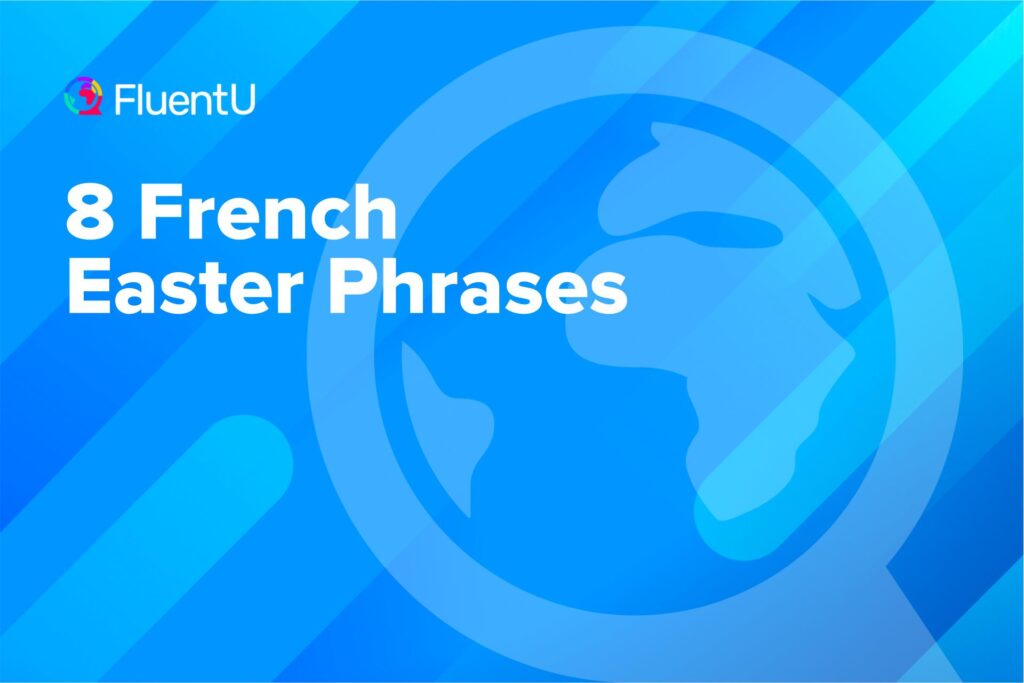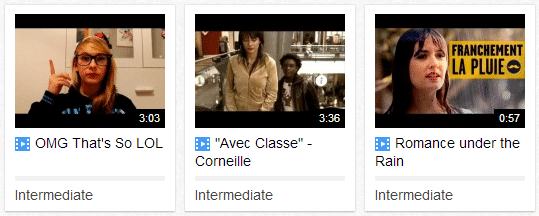8 French Easter Phrases

Looking forward to the Easter holidays? Are you also learning French? Or maybe you are just wondering how the traditional celebrations are different in France to other countries?
Then with this list of phrases and the accompanying explanations you’ll be able to add a little French flair to your spring festivities.
Download: This blog post is available as a convenient and portable PDF that you can take anywhere. Click here to get a copy. (Download)
1) Bonjour… Joyeuses Pâques !
Meaning: Hello… Happy Easter!
Pâques is a day that falls on different dates each year, but always in spring, on a Sunday. In Anglophone countries it is known as Easter. It predominantly derives from the Christian faith, but many of its traditions are a mixture of the rituals of many religions, old and new. The commercialization of Pâques has made it that these days it is perhaps best known for one thing: chocolate! We will get onto that later but for a start, on the day, it is natural to say to friends and family Joyeuses Pâques (Happy Easter). It is a popular holiday in France where schools and universities give their students two weeks of vacation! These are called vacances de Pâques. Easter Monday is a National Holiday, meaning employees of most companies get the day off.
2) Attendez que les cloches sonnent
Meaning: Wait for the bells to sound
Attendez que les cloches sonnent is something that is likely to be said to impatient children. Here’s why: Unlike in other countries including Germany, the UK and America where the Easter Bunny brings the eggs, throughout most of France* it is the ringing of the church bells that deposit the eggs into the gardens from the sky. But only if the children have behaved themselves throughout the year!
*However, depending the place and the people it may also be a rabbit or a chicken that delivers the eggs.
3) Partir à la chasse aux œufs
Meaning: To go on an egg hunt
Once the eggs fall from the sky they become scattered and hidden in everybody’s backyards—and so the hunt begins. Normally it is the adults that hide the eggs for the children to find, but it is not uncommon for French children (once they have realized the eggs don’t actually fall from the sky) to take more pleasure out of hiding the eggs from the adults.
4) Tout le monde mange les œufs en chocolat
Meaning: Everyone eats chocolate eggs
The French are known for their sweet tooth and their Francophone neighbors the Belgians are renowned for making the world’s best chocolate, so, during Pâques it would be difficult to find anybody in this part of the world who hadn’t eaten at least one little Easter Egg.
5) Attention à l’indigestion !
Meaning: Beware of indigestion!
Because of the renowned sweet tooth, a phrase like this is often used as a humorous but justified reply to somebody wishing you a Happy Easter. Attention à l’indigestion ! would then be a subtle way of saying don’t eat too much chocolate.
6) Gigot d’agneau
Meaning: Leg of lamb
Don’t worry too much about a health scare, though. It isn’t just chocolate that is eaten on Pâques. For those in need of a good square meal, why not eat gigot d’agneau (a French dish that is traditionally eaten on this day). Gigot d’agneau is a leg of lamb and will often be served with potatoes and other seasonal vegetables.
7) Se faire poissonnier la veille de Pâques
Meaning: To become a fish seller the day before Easter
There are a few idiomatic expressions that can be used all year round that refer to Pâques. Se faire poissonnier la veille de Pâques is a way of saying: to pick the worst time possible to do something. The idea being that since many Christians abstain from meat during Lent and eat fish instead, that the best time of year for fish sellers is during Lent. The day that Lent ends would be the worst possible time to open up a fish shop since by that time, everybody’s more than ready to go back to eating meat.
8) À Pâques ou à la Trinité
À Pâques ou à la Trinité is a way of saying that something is never going to happen. The idea being that the second coming of Christ will probably happen before the event being referred to happens.
Download: This blog post is available as a convenient and portable PDF that you can take anywhere. Click here to get a copy. (Download)
And One More Thing...
If you like learning French at your own pace and from the comfort of your device, I have to tell you about FluentU.
FluentU makes it easier (and way more fun) to learn French by making real content like movies and series accessible to learners. You can check out FluentU's curated video library, or bring our learning tools directly to Netflix or YouTube with the FluentU Chrome extension.
One of the features I find most helpful is the interactive captions—you can tap on any word to see its meaning, an image, pronunciation, and other examples from different contexts. It’s a great way to pick up French vocab without having to pause and look things up separately.
FluentU also helps reinforce what you’ve learned with personalized quizzes. You can swipe through extra examples and complete engaging exercises that adapt to your progress. You'll get extra practice with the words you find more challenging and even be reminded you when it’s time to review!
You can use FluentU on your computer, tablet, or phone with our app for Apple or Android devices. Click here to take advantage of our current sale! (Expires at the end of this month.)










